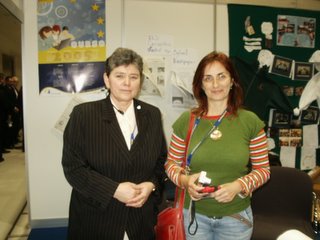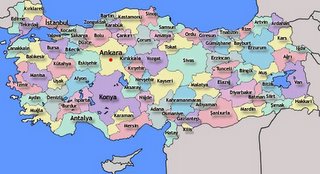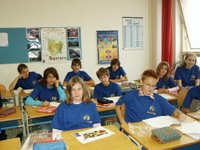
In the Czech Republic, there exists some youth's councils which allow children and young people to speak about problems at school/town/region, to organize something and so on.
I would like to write more about it:
At our school, there is a students' council. It should have 40 voted members (2 members from each class) and maybe some other members but not so many people come to meetings and work. In fact, there isn't more than 20 people which work and not all of them are voted members...
We meet once a week or two and our meetings are usually 45 minutes long (as one lesson). We speak about problems in the school and we say our ideas about what could help, we can also say what students in our class dislike (or like), and we organize some activities.
Our students' council have some problems to face (money, some teachers dont's respect us, people don't want to be in it, ...) but I think it works very well, surely we are quite successful and - in my opinion - it is great that it exists.
In our town, there is the vestry (the council) of children and young people. There should be at least 2 voted members from each school (usually from students' councils) but - again - not all people come and work...
We meet usually once a month at the town hall and we speak about problems in our town, about some activities, we organize some activities and competitions (usually with someone who help us, often it is the youth house Libertin).
Then there is a regional parliament of youth. In our region, the regional parliament is really new (in fact, it exists from beggining of this school year) and so far it doesn't work well but I believe it will everything move forward. (On Monday, we have second meeting so I'll know more then...)
Each regional parliament have its rules which say how many members may be there etc. Usually, it depends on how many town vestries are in the region. In our region, the number of members from each town depends also on population of the town the members are from (for example, Liberec, which has population of about 100 000 people, may have up to 11 members while Česká Lípa, which has population of about 40 000, may have only 8 members. Smaller towns may have less...
Regional parliament should meet once in about two months. People there usually speak about similar things as people in the town vestries but the things they speak about are problems and activities for all the region.
Then, there is National parliament of children and young people. Each region may have 6-8 members there. This parliament meets only once a year - in November - for a few days in Prague (which is, as - I suppose - you know, the capital of the Czech Republic).
Members of this parliament are division into five committees - foreign committee (which cares about international cooperation and sometimes organize some visits in other countries), methodical and conceptual committee (which cares about statut and some methodicses), media committee (which cares about publicity of this system (students' councils, town vestries, regional parliaments, National parliament) in the media), committee for the rights and the duties (which cares about - what else - rights and duties of children and young people) and cultural committee (which cares mainly about cultural programme of meetings).
At meeting of the National parliament people work in the committeeses. There is usually one topics and all committeeses work with this topic (in 2005 - when I was at the meeting - for example, it was projects for "Česká národní agentura Mládež" (Czech national agency Youth))
The last thing I want to mention is the praesidium of National parliament of children and young people. From each region, there are 2 members. These people meet each moth, for one week in Prague. They work on something there (this year, for example, they complete the projects and they have to send an application for grant). They also prepare the "big meeting" - the meeting of whole National parliament.
Well, all these councils and parliaments have some problems to face but they all work successfully. I am really glad that something like this may exist and exists.






